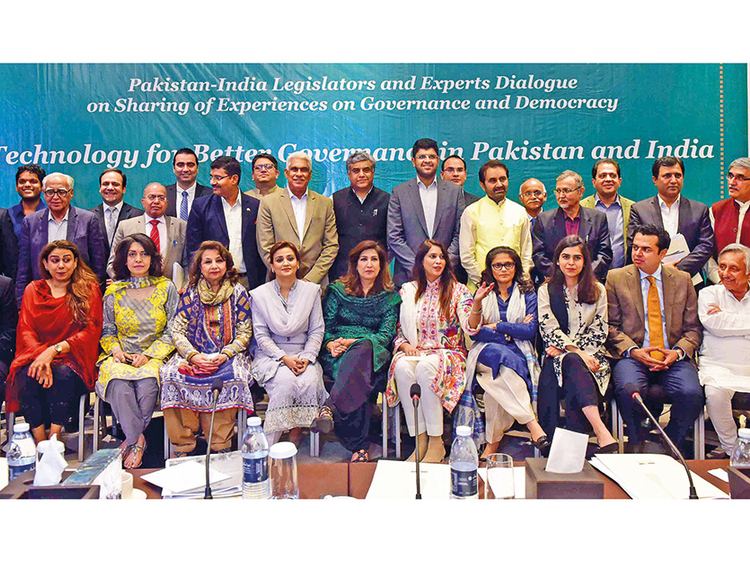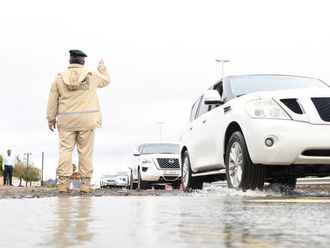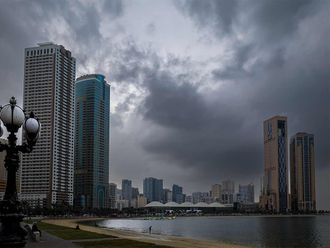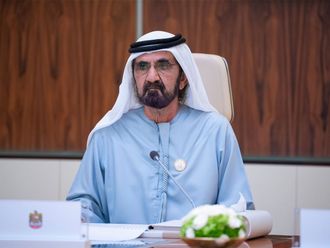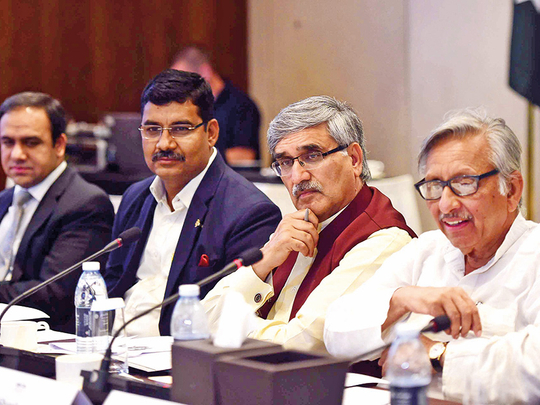
Dubai: Even as official talks between India and Pakistan continue to stagger, track-two diplomacy is flowing in Dubai, with politicians from both sides discussing better governance and bridge building.
On Tuesday, more than a dozen parliamentarians, media bosses and technocrats from both sides convened in Dubai for a dialogue on governance.
The event was organised by the Pakistan Institute of Legislative Development and Transparency (PILDAT), which has now held 11 such meetings — almost half of them in Dubai — in recent years.
Speaking on the sidelines of Tuesday’s discussions, which focused on the theme of ‘Technology for Better Governance’ in the two nations, delegates told Gulf News the various PILDAT topical exchanges are also opportunities to ease tensions between India and Pakistan. They described Dubai a “middle ground” where members of parliament and leaders from other sectors, in both countries, could convene without visa hassles or a charged political climate. India and Pakistan have fought multiple wars over Kashmir, a territorial issue that continues to plague relations between the two neighbours. Claims and counterclaims on other issues, such as terrorism and water resources, also bedevil ties. The differences are often hyped by politicians and the press, with debates on TV routinely devolving into shouting matches.
At Tuesday’s PILDAT meeting, held at Pullman Dubai Creek City Centre Hotel, there was nothing to indicate Indians and Pakistanis were anything but friends.
Dr Arif Alvi, president of the Pakistan Tehreek-e-Insaf (PTI) party’s Sindh province unit, who is also a Member of the National Assembly (MNA), told Gulf News that such meetings in Dubai at least sustain the momentum towards cooperation.
“Peace is the fundamental need of the hour for the subcontinent. The amount of money being spent on arms by India and then in reaction by Pakistan is too much. Because of poverty in both places, they cannot afford to spend that much, yet they continue to do so. To counter such issues, it is imperative that such [PILDAT] forums grow and such contacts grow,” Dr Alvi added.
Ahmad Bilal Mehboob, president of PILDAT, said Dubai is best placed for the forum because of its proximity to Pakistan and India, the frequent air links, the hosting facilities and the large number of expats from both countries, which proves genial for track-two diplomacy. He added that “getting a visa for India by Pakistanis, or a visa for Pakistanis by Indians, has become extremely difficult or impossible”.
Mani Shankar Aiyar, former member of the Indian parliament and ex-union minister of India — who chaired Tuesday’s dialogue — said it was “unfortunate” PILDAT had to convene in Dubai, rather than in India or Pakistan.
Aiyar added: “I’m very unhappy about our meeting in Dubai because the USP [unique selling point] of PILDAT was that they were planning to hold their meetings only in India or in Pakistan, but unfortunately the atmosphere over the last couple of years has been so vitiating that we have been obliged to come to Dubai.
“So although it’s nice to come to Dubai — I have nothing against Dubai — it seems, to me, to be a derogation from our original purpose that we have had to meet the last three of four times in Dubai.”


